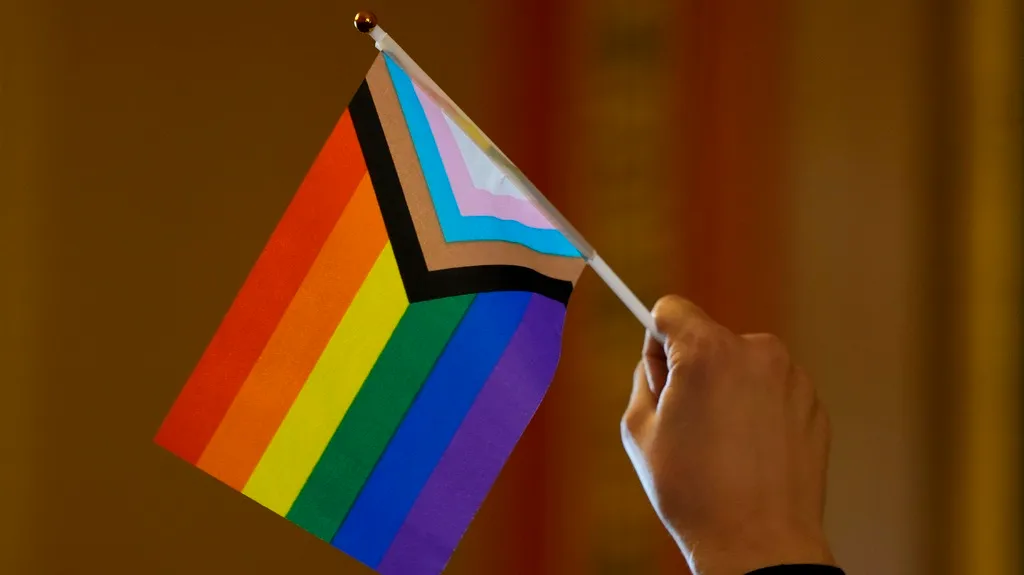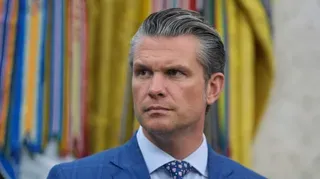October 26, 2017
October 26 Marks Intersex Awareness Day
READ TIME: 5 MIN.
October 26 marks Intersex Awareness Day, an internationally observed awareness day designed to highlight human rights issues faced by intersex people. It is an international day of grass-roots action to end shame, secrecy and unwanted genital cosmetic surgeries on intersex children. The day also provides an opportunity for reflection and political action.
The event marks the first public demonstration by intersex people in North America, on October 26, 1996, outside the venue in Boston where the American Academy of Pediatrics was holding its annual conference. Intersex activists Morgan Holmes and Max Beck participated for the (now-defunct) Intersex Society of North America, alongside allies from Transsexual Menace including Riki Wilchins.
On the occasion of Intersex Awareness Day, several jurists have issued a manifesto against intersex genital mutilation. The manifesto was issued by Daniel J. Garc�a, professor of Philosophy of Law at the University of Granada, Spain, and has been signed by several Spanish jurists and a jurist from Argentina.
They write, "The undersigned, jurists and specialists in Law, report the mutilations of the surgeries of newborn genital normalization, and also any other medical treatment that is purely aesthetical, that intersex people suffer. We understand that we are facing a crime against humanity that is at the same level as genocide. According to the article seven of the Rome Statute of 1998 that the International Criminal Court created, a crime against humanity consists of 'a generalized or systematic attack against civil population and being aware of this attack.'"
Physicians for Human Rights, a Nobel Peace Prize Co-laureate, have also published a statement calling for unnecessary surgeries on intersex children to stop.
Homer Venters, M.D., PHR director of programs writes, "Physicians for Human Rights is deeply alarmed by the fact that children born with atypical sexual characteristics -- sometimes referred to as intersex children, or children with intersex variations -- are often subjected to irreversible and medically unnecessary surgeries that seek to alter their gonads, genitals, and/or internal sex organs before they are able to provide informed consent."
"These surgeries, which can result in sterilization and decreased sexual function, among other negative health outcomes, have been highlighted by United Nations human rights and health experts as counter to the absolute prohibition of cruel, inhuman, and degrading treatment, and as compromising the human rights to physical integrity and health," said Venters. "From a medical ethics perspective, carrying out an irreversible and medically unnecessary surgery before a child is old enough to consent violates internationally recognized informed consent requirements, and violates the obligation to do no harm."
Physicians for Human Rights called for an end to all medically unnecessary surgical procedures on intersex children before they are able to give meaningful consent to such surgeries.
There are also a number of events marking this day. In North Carolina, Duke Law is holding an Intersex Awareness Day event on Human Rights in Practice: "Ending Medically Unnecessary Surgery on Intersex Children," with Kyle Knight of Human Rights Watch and Alesdair Ittelson of interACT. They will give a lecture on "Ending Medically Unnecessary Surgery on Intersex Children," moderated by Carolyn McAllaster, Clinical Professor of Law and Director of the HIV/AIDS Policy Clinic at Duke Law.
Based on a discredited medical theory popularized in the 1960s, doctors today perform irreversible and medically unnecessary surgery on intersex children -- often in infancy -- with the stated aim of making it easier for them to grow up "normal." The results are often catastrophic, the supposed benefits are largely unproven, and there are rarely urgent health considerations requiring immediate, irreversible intervention.
The operations amount to violations of rights to bodily autonomy, freedom from torture, and health -- and are coming under increasing scrutiny around the world. But can human rights arguments alone change a medical paradigm?
This event will be held Thursday, 26 October at 12:30 p.m. at Room 4045, Duke Law School, 210 Science Drive, Durham, NC 27708.
Also on Intersex Awareness Day, a midday protest will take place outside Lurie Children's Hospital, Chicago, including advocates Pidgeon Pagonis and Sean Saifa Wall, with support from members of For the People Artist's Collective, Chicago Black Trans & Gender Non-Conforming Collective and Dyke March Chicago Collective.
Pagonis is a national leader in the fight for intersex rights, is a survivor of numerous medical procedures described as "corrective" measures, performed at Children's Memorial Hospital (now Lurie) during their childhood.
"When I was a child, doctors at Chicago's Children's Memorial Hospital chose my sex and performed multiple surgeries to make my intersex body conform to their choice," said Pagonis. "We are uniting in protest at Lurie, demanding they change policy to become the first hospital in the U.S. to ban unnecessary intersex surgery."
This event will be held on Thursday, 26 October, at 12 p.m. CST at Lurie Children's Hospital, 225 E. Chicago Ave, Chicago (live stream at fb.com/pidgeon). For more information, visit endintersexsurgery.org
Between October 26 and November 8, intersex organizations bring attention to the challenges intersex individuals face, culminating in the Intersex Day of Remembrance on November 8, the birthday of Herculine Barbin, also sometimes known as Intersex Solidarity Day. Be sure to stand with intersex people!
For more information, visit http://intersexday.org/en/



